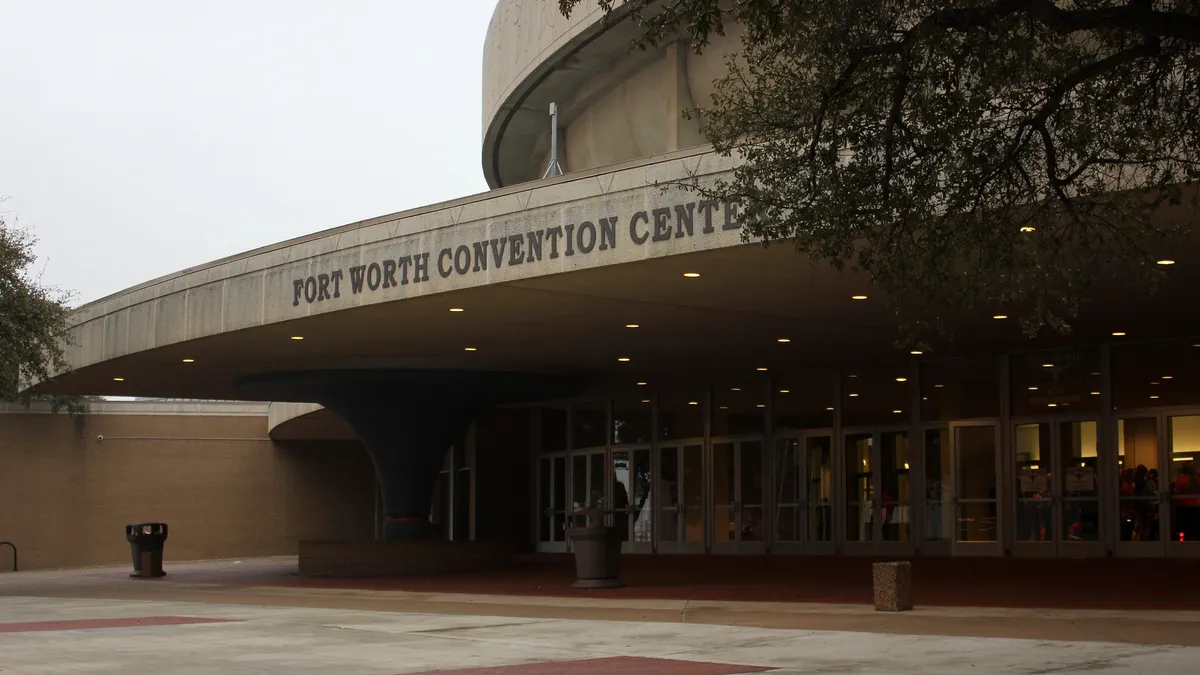Dive Brief:
- Citing flush “rainy day funds” among its state and local government clients, Dallas-based contractor AECOM posted increased profit in the fourth quarter. The firm reported earnings Monday of $87.9 million, or $0.63 per diluted share, up 43% from a year ago, on revenue of $3.38 billion, a 3.5% increase from the same period in 2021.
- On an adjusted basis — which excludes one-time charges and fees — the company had earnings of $0.86 per share in its 2023 fiscal first quarter, which ended Dec. 31. That beat analysts’ consensus estimate of $0.82 per share, while its overall revenue was in line with expectations, according to stock analysis site SeekingAlpha.
- The firm’s total backlog increased to $40.82 billion, up 5% from a year ago, and contracted backlog stood at $23.2 billion, an all-time high, according to the company. AECOM reiterated that it expects full year earnings in the range of $3.55 to $3.75 per share on an adjusted basis for all of fiscal 2023, which ends Sept. 30, slightly below analysts’ expectations of $3.78, according to SeekingAlpha.
Dive Insight:
Troy Rudd, AECOM’s CEO, reported that the company has been on an aggressive hiring spree as it looks to grow capacity in markets it says are still expanding.
“All of our end markets are growing, and we are aggressively adding to our workforce to deliver on our commitments,” Rudd told investment analysts during a conference call Tuesday. “It's kind of an unusual predicament in that we're focused on trying to continue to create capacity to keep up with the rate at which we're winning work.”
He said those factors differentiate the firm “from many businesses that are seeing macro conditions continue to soften.”
Help wanted
AECOM’s hiring push reflects a broader trend among contractors, with most planning to increase their staffing levels over the next six months.
While the broader technology sector has posted an increasing number of layoffs, including at construction-related software provider Autodesk, Rudd said the company is buoyed by the fact that its state and local clients have full coffers, even before the expected peak in funding in 2026 and 2027 from the $1.2 trillion bipartisan infrastructure law.
“We see the rainy day funds in state and local governments being at the highest level going back to the 1980s,” Rudd said. “There's just really strong underpinning for the long-term investment that's been set aside for infrastructure, and there certainly is demand for it.”
Contrarian strategy
Given the multiyear nature of those types of projects, Rudd said the firm is often seeing opportunities to participate in the additional phases of existing projects it works on.
Thirty percent of those jobs are now over $25 million, Rudd said, up from 12% to 15% several years ago as the company has pursued larger contracts, a contrarian strategy to what many contractors have implemented in recent years. California-based competitor Granite Construction, for instance, has been vocal about eschewing long-term, complicated “megaprojects” where final designs and costs can change drastically from project start to end.
Rudd said while there has been softness in residential and commercial construction markets in the U.S., other specialty segments have seen robust activity, including airports, sports stadiums, convention centers and municipal investments.
Last quarter the firm announced wins for itself or its joint ventures including:
- The rebuilding of the Fort Worth Convention Center in Texas.
- The Glassboro-Camden Line Light Rail project in New Jersey.
- Program management support selection by the California High Speed Rail Authority.
- The extension of its contract for the East County Advanced Water Purification Program in San Diego, California.
“We are still seeing a great pipeline of opportunities, in particular some large opportunities,” Rudd said. “And some large projects that will create great long-term visibility for us to build upon.”














